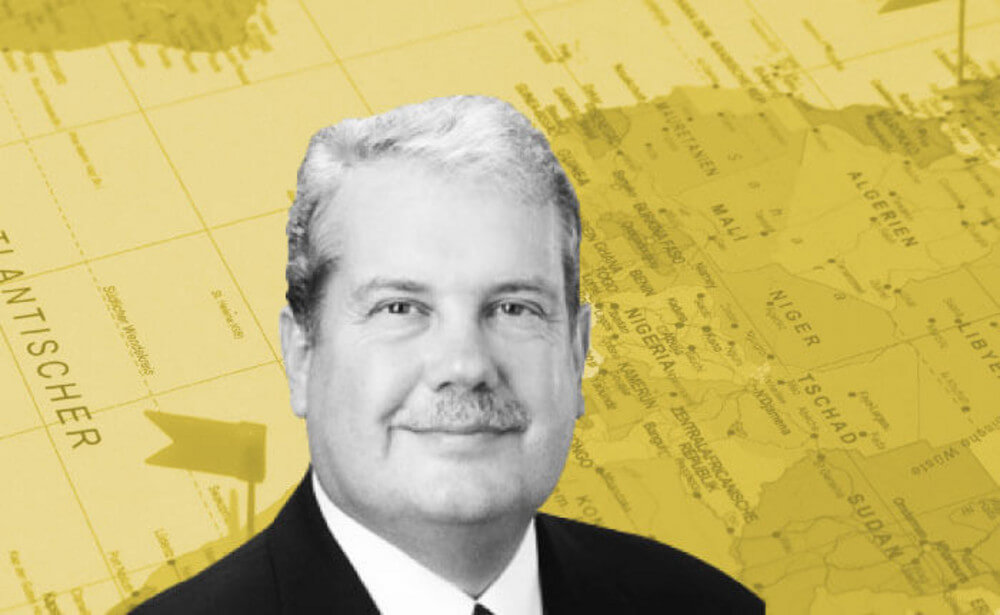
Kevin Waltz, President of Ophthalmic Research Consultants, and Chair, Board of Directors for Central American Eye Clinics, is passionate about ophthalmic outreach, as long as it is done the right way. He summarized how efforts to provide eye care in remote locations have changed over the past few decades:
"In the past, ophthalmologists would mostly travel to a certain location and follow the American marine model: go self-contained, hit the ground running, operate, then fold everything and take it back home. These days projects try to follow a model of supporting local doctors, transferring skills or improving existing skillsets, and using the equipment available at a specific location, which provides a much stronger benefit over time – although that is not always possible. The ultimate goal is to set up a facility that can function independently long-term. A great example of this is the Himalayan Cataract Project.
If I go to a remote setting and perform surgeries myself, I might be able to do a few dozen in a year, broken up over several visits, but if local professionals learn the techniques and have the technology available, they can do so much more – and there are several thousand people waiting for their procedures.
It usually takes between five and ten years to set up a facility in a remote location. Modern equipment is often completely different from what local ophthalmologists originally trained on, and it takes time to adjust to a different microscope, a new set of instruments, or a new phaco machine. Local doctors are often experts in traditional cataract surgery, and they can easily take a person from being blind from cataracts to 20/100 vision, time and again, which in itself is amazing, and makes both doctors and patients happy. But if they can learn how to improve these outcomes and give 20/30 or even 20/20 vision to cataract patients, that’s on a whole different level. Each intervention should maximize benefits to patients, even if it requires a mindset change and learning some new skills."
Earlier, Waltz shared with our readers his seven lessons on being a more responsible provider of eye care to people in developing countries and remote locations...
Here's lesson #5: Bad clinics can get closed... by drug dealers!
"Hugo Chávez was famous for using Venezuela’s oil wealth to fund doctors for the poor – he would send tens of thousands of barrels of oil to Cuba each day. Part of what he got in return was tens of thousands of Cuban doctors and teachers who worked in its barrio slums. Things are different now – oil prices have dropped – but, at the time, the Honduran government did the same as Chávez. The problem was that when it came to cataract surgery, many Cuban doctors did a bad job – and people simply wouldn’t go back and risk having their second eye operated on by them. I know this story well because I ended up doing many of the second eye surgeries myself...
Being a part of this world exposed me to one leveling effect of the drug trade. The barrios where the Cuban doctors worked are areas where drug dealing is rife. Quite naturally, the parents of drug dealers get cataracts. They go to the local Cuban-run clinics, it doesn’t go well, and their parents are blinded. The drug dealers know how to deal with that... And the clinics close. It’s an unusual case of where drug dealing was actually beneficial to society!
The US government has been in a constant struggle with Venezuela under Chávez and his successors for many years – and competing philosophies on how to help those in need is one of those areas of conflict. It is ironic that US volunteers were providing a very strong counterpoint to the efforts of the Venezuelan government by providing a superior service to the needy people of Honduras."
You may know that before becoming an ophthalmologist, Waltz was an optometrist. He shared his perspective in part of our feature, Shared Vision, exploring the essential, yet sometimes complicated relationship between MDs and ODs.
"This relationship has been difficult throughout my 38-year career. In the early 1980s, optometrists wanted to get drug-prescribing privileges for diagnostic drops. The ophthalmology profession fought against this move by the optometric profession, but lost, and these days every US state allows optometrists to prescribe these drops. A similar process followed in the case of therapeutic drops, and now surgical privileges are on the table."

